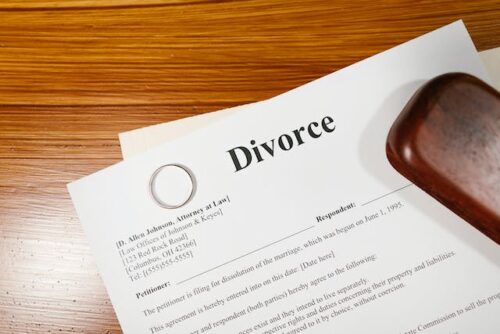
If one spouse refuses to sign divorce papers, can they just delay the divorce indefinitely? It’s a common trope in TV and movies, one person struggling to move on with their life and sign the papers, holding up the entire process. That’s not how things work in New Jersey though. It only takes one spouse to file for divorce and then the process can begin. Our Bergen County divorce attorneys can tell you more about how it all works.
How Long Does My Spouse Have to Respond and Sign Divorce Papers?
Your spouse has 35 days to respond after being served with divorce papers. If they do nothing, then the process starts to move on without them. One spouse cannot force another to stay married, even if they try to do everything that they can to delay the divorce from going through.
What Happens if My Spouse Won’t Sign Divorce Papers?
When your spouse does not sign divorce papers, the court starts the divorce process without them. Anything that you submit to the court is reviewed by a judge. If you have asked for certain things like alimony or child custody, the judge can consider granting them. If you have a plan for how you want the assets divided up, that will be considered as well.
If your spouse does not sign divorce papers or otherwise avoids taking part in this process, the court is likely to render a default judgment. This can happen whether your spouse tries to dodge the process server, whether they will not sign the papers, or they do not show up to court.
What is a Default Judgment?
A default judgment essentially grants the divorce even though only one spouse is participating in the process. This not only allows the process to move forward, but it also usually ends up being quite favorable for the spouse who filed for divorce.
If you filed for divorce and submitted evidence and arguments to the court, your spouse would normally be able to counter your arguments with their own. Because your spouse won’t sign divorce papers and participate in the process, the judge has only heard from you. That makes it more likely that the court will grant your requests.
Does a Default Judgment Grant Any Request?
A default judgment can make it easier to have your wishes honored by the court. If you asked for child custody, child support, and alimony, and your spouse did not show up to contest your arguments, then a default judgment is likely to work out in your favor. There are limits though. The court is not going to grant requests for insane amounts of alimony or blatantly inequitable distribution of property in most cases.
Schedule Your Consultation
So if you are ready to file for divorce, contact Townsend, Tomaio & Newmark. We can help you take the first steps and begin this lengthy process.